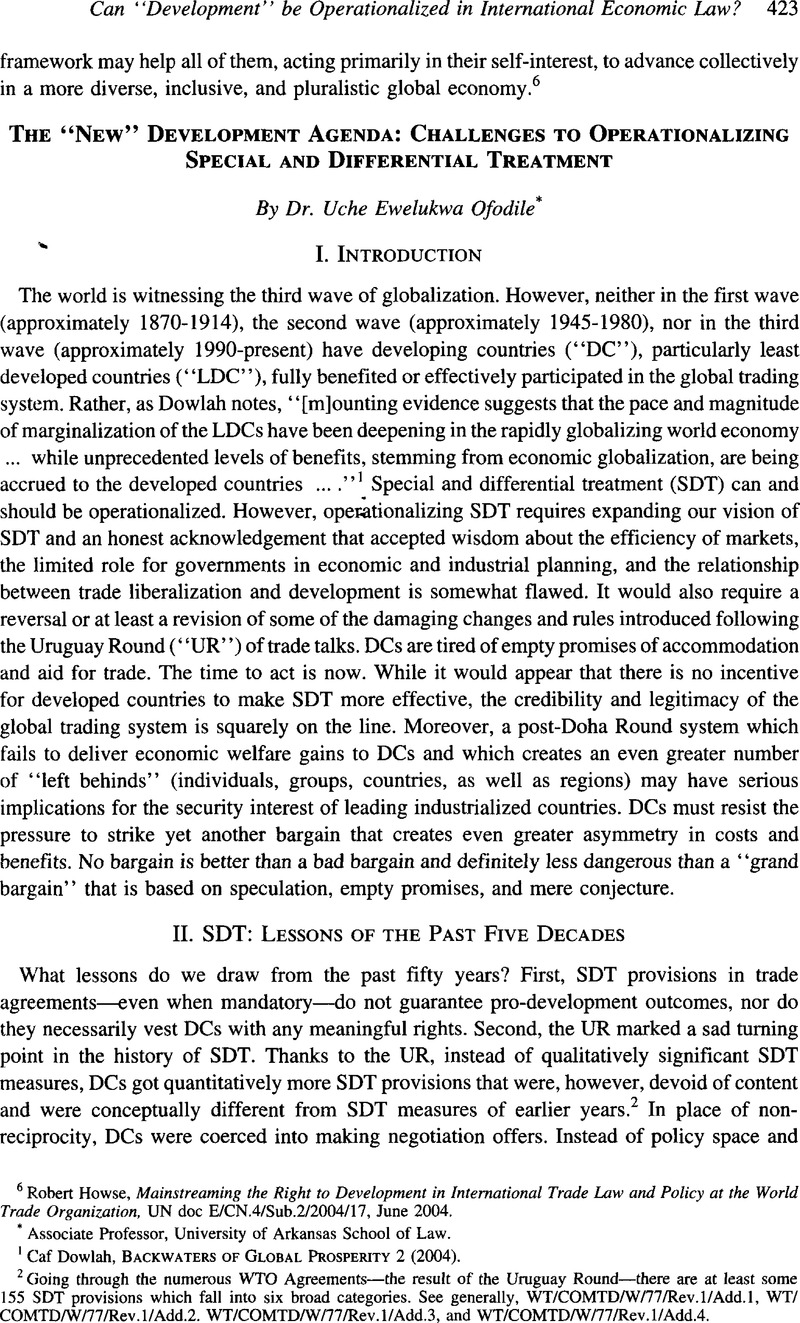No CrossRef data available.
Published online by Cambridge University Press: 28 February 2017

1 Caf Dowlah, Backwaters of Global Prosperity 2 (2004).
2 Going through the numerous WTO Agreements—the result of the Uruguay Round—there are at least some 155 SDT provisions which fall into six broad categories. See generally, WT/COMTDAV/77/Rev.1/Add.1, WT/COMTD/W/77/Rev.l/Add.2.WT/COMTD/W/77/Rev.l/Add.3, and WT/COMTD/W/77/Rev. l/Add.4.
3 Garcia, Frank J. Beyond Special and Differential Treatment, 27 B. C. Int’l & Comp. L. Rev. 291-317 (2004)Google Scholar.
4 Lewis, Meredith Kolsky, WTO Winners and Losers: The Trade and Development Disconnect, 39 Geo. J. Int’I L. 165, 169 (2007)Google Scholar.
5 Id.
6 See, e.g., General Council, Proposal for a Framework Agreement on Special and Differential Treatment, WT/GC/W/442, ¶ 15 (Sept. 19. 2001); CTD, Communications from the EC, TN/CTD/W/13 (Aug. 1, 2002); CTD, Joint Communication from the African Group in the WTO-Revision, TN/CTN/W/3/Rev. 1, ¶ 23-24 (June 24, 2002). See also Garcia, supra note 3, at 307.
7 Agreement Establishing the WTO, Article III.
8 Decision on Implementation, ¶ 11.2.
9 See generally, The World Economic Situation and Prospects (2009) and Trade and Development Report (2008).
10 c/f Daniel Ikenson, While Doha Sleeps: Securing Economic Growth through Trade Facilitation, Cato Institute No. 37, June 17, 2008 (observing that “Improving the international trading system does not require new, comprehensive multilateral agreement.”).
11 Id.
12 ld.
13 John Wilson, Catherine L. Mann, & Tsunehiro Otsuki, “Trade facilitation and Economic Development: Measuring the Impact,” World Bank Policy Research Working Paper no. 2988, Mar. 2003.